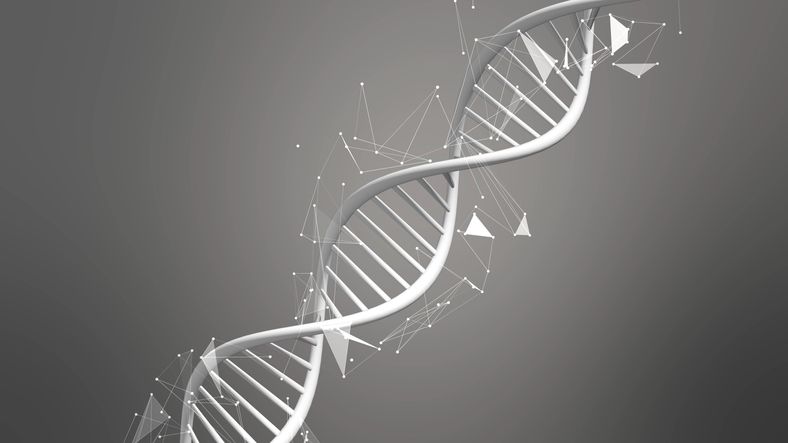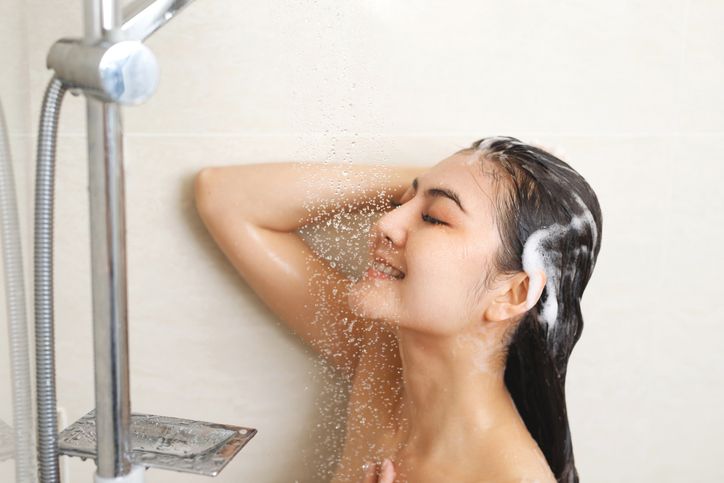
- Home
- Trend
- Weight Loss Strategies
- Acne Tips
- Hair Health Information
- Blemish Removal Tips
- Acne Scar Removal Tips
- Muscle Building Techniques
- Intimate Care Tips
- Postpartum Intimate Care
- Eye Bags Wiki
- Tips for Face Slimming
- Secret of Permanent Hair Removal
- Breast Enlargement Tips
- Cure to Snoring
- Marionette Lines
- Skin-Tightening Secrets
Hair loss vitamins have become a hot topic among urban dwellers as a dietary supplement designed to reduce hair shedding. These vitamins are now considered a type of hair growth and hair care product, as people increasingly recognize that maintaining overall health—including scalp and hair health—is essential for nourishing hair follicles and supporting healthy hair growth.
Nutrients such as protein, biotin, vitamins, and minerals all play a role in promoting hair health. In this article, we’ll break down the 6 common causes of hair loss and explore the most effective hair growth nutrients, so you can improve your hair health naturally through a balanced diet!
6 Common Causes of Female Hair Loss—Environmental Factors Also Affect Hair Growth?!

1. Genetic Predisposition
Do your parents or grandparents have a history of hair loss? If so, you may be genetically predisposed to it too. Androgenetic alopecia (commonly known as male/female pattern baldness) is largely hereditary. Dihydrotestosterone (DHT) in the body can shrink hair follicles, causing the hair to become thinner, shorter, and eventually stop growing altogether.
2. Excessive Stress
Living in Hong Kong can be extremely stressful—working overtime, thinking about work even after hours... prolonged stress causes the body to release large amounts of stress hormones, which disrupt the hair growth cycle and push many hairs prematurely into the resting phase, leading to noticeable hair loss.
3. Nutritional Deficiencies
Skipping meals to lose weight? Only eating bread for all three meals? Then your hair isn’t getting the nutrients it needs! Hair is primarily made of keratin and collagen, and producing these proteins requires a variety of vitamins and minerals. Without proper nutrition, your hair becomes weak, brittle, and may even stop growing altogether.
4. Using Unsuitable Hair Products
Thinning hair can also result from using shampoos or conditioners that don’t suit your scalp. Shampoo is the most frequent product that comes into contact with your scalp. Improper washing frequency, inadequate cleansing, or over-cleansing can all upset scalp health due to harsh ingredients—ultimately hindering hair growth.
5. Environmental Factors
Did you know your environment can contribute to hair loss? Seasonal changes in particular can affect scalp health, as sudden shifts in temperature make it difficult for your scalp to adapt, slowing hair growth. Additionally, changes in ventilation—like wearing hats for extended periods—can cause an imbalance in scalp oil and moisture levels, damaging the hair follicles.
6. Other Harmful Behaviors: Postpartum Hair Loss, Unhealthy Lifestyle, Frequent Dyeing and Perming
Aside from the main causes, other poor habits can accelerate hair loss. For example, postpartum hormonal fluctuations can trigger temporary hair loss in women. Late nights, smoking, and alcohol consumption also undermine your overall health—including your hair. And for those who frequently dye or perm their hair, the chemicals and heat can damage both scalp and hair, making your hair more fragile and prone to falling out.
Hairline Rescue Plan: 4 Key Hair Loss Vitamins to Know

Hair Loss Vitamin 1: Vitamin A
Vitamin A plays a crucial role in keeping the scalp and hair follicles healthy. It helps sebaceous glands produce enough oil (sebum) to moisturize the scalp and prevent dryness, inflammation, and flaking—creating an ideal environment for hair growth. It also aids in cell repair and regeneration. However, it’s important not to overdo it, as too much vitamin A can actually cause hair loss. Moderation is key!
Hair Loss Vitamin 2: Vitamin B Complex (especially B7 Biotin and B12)
• Biotin (Vitamin B7): A water-soluble vitamin essential for keratin production—the main component of hair. Sufficient biotin can strengthen the hair shaft, reduce breakage, and improve hair texture for stronger, healthier hair.
• Vitamin B12: Helps the body produce red blood cells, which transport oxygen and nutrients to every part of the body, including hair follicles. A deficiency may lead to anemia and inadequate nourishment for follicles, triggering hair loss.
• Other B Vitamins (B2, B3, B5, B6): These support energy metabolism and cellular function, contributing to a healthy scalp. For example, niacin boosts scalp circulation, while pantothenic acid helps build hair structure.
Hair Loss Vitamins 3: Vitamin C & Vitamin E
Most people associate vitamins C and E with antioxidants or skin brightening, but they’re vital for hair too!
• Vitamin C is necessary for collagen synthesis—a key structural protein for both hair and nails. It helps anchor hair at the root and supports healthy growth.
• Both vitamin C and E have powerful antioxidant properties that neutralize free radicals, protecting hair follicles from aging and damage. They also improve iron absorption, which is essential for nourishing hair follicles.
免費體驗
F8 Hair Regrowth Treatment
1 Minute Self-Registration
Date should not be before minimal date
4 Tips for Choosing the Right Hair Loss Vitamin Supplement
• Check the Ingredients: Look at which vitamins and minerals are included, along with their dosage. Choose a supplement that meets your personal needs.
• Pick a Trusted Brand: Don’t just go for the cheapest option. Choose reputable brands with strict manufacturing standards for better quality assurance.
• Look for Third-Party Certifications: Certifications like GMP (Good Manufacturing Practices) indicate the product meets recognized safety and quality standards.
• Consult a Professional First: Always check with a doctor or pharmacist—especially if you have existing health issues or take other medications—before starting any supplement.
Cautions and Side Effects When Taking Hair Loss Vitamins
1. Risk of Overdose: More Is Not Better!
Taking excessive amounts of vitamins can burden your body and cause side effects. For example, too much vitamin D can lead to calcium buildup, and excess vitamin A may cause headaches or nausea. Always follow the recommended dosage—don’t increase it on your own!
2. Special Populations (Pregnant or Breastfeeding Women)
If you're pregnant or breastfeeding, consult your doctor before taking any supplements. Some vitamins in excess could negatively impact your baby. Your doctor will tailor a safe and effective plan based on your condition.
3. Potential Drug Interactions
If you’re already on medication, ask your doctor or pharmacist before adding supplements. Some vitamins may interact with drugs, altering their effects or increasing the risk of side effects.
Don’t Want to Spend Time Researching Hair Vitamins? Try a Faster, More Effective Solution for Female Hair Loss: Perfect Medical F8 Hair Regrowth Treatment
Hair growth doesn’t have to rely solely on vitamins! Introducing a powerful medical aesthetic treatment that tackles female hair loss directly: Perfect Medical F8 Hair Regrowth Treatment. No need to identify the exact cause of your hair loss, take supplements, or use topical products—just lie back and let the technology do the work!
This treatment uses patented low-level soft laser therapy that reactivates dormant hair follicles. It not only promotes healthy hair growth but also improves hair texture, reducing breakage, frizz, tangling, and shedding. If you’re dealing with widespread thinning, receding hairlines, telogen effluvium, seborrheic hair loss, postpartum hair loss, or stress-induced shedding—this could be your answer.
Sign up now for a consultation and enjoy a professional scalp analysis + F8 Hair Regrowth Treatment trial with zero hassle!
Sign Now: Perfect Medical F8 Hair Regrowth Treatment免費體驗
F8 Hair Regrowth Treatment
1 Minute Self-Registration
Date should not be before minimal date
FAQ

How do vitamin C and E help improve hair texture?
Vitamin C supports protein synthesis and overall hair and nail health. Vitamin E, as a natural antioxidant, helps reduce free radicals and prevents scalp and hair damage—over time improving hair texture and volume.
What does Traditional Chinese Medicine (TCM) say about female hair loss?
TCM believes hair loss is often due to qi and blood deficiencies. Enhancing the flow of qi and blood circulation can help stimulate healthy hair growth.
Can vegetarians take hair loss vitamins?
Yes! Many hair supplements now use vegetarian capsules, so vegetarians can take them to support hair health.
Can the wrong hair care products cause hair loss?
Yes. Using products incompatible with your hair or scalp type—especially those with harsh chemicals—can disrupt scalp balance and contribute to hair shedding.








